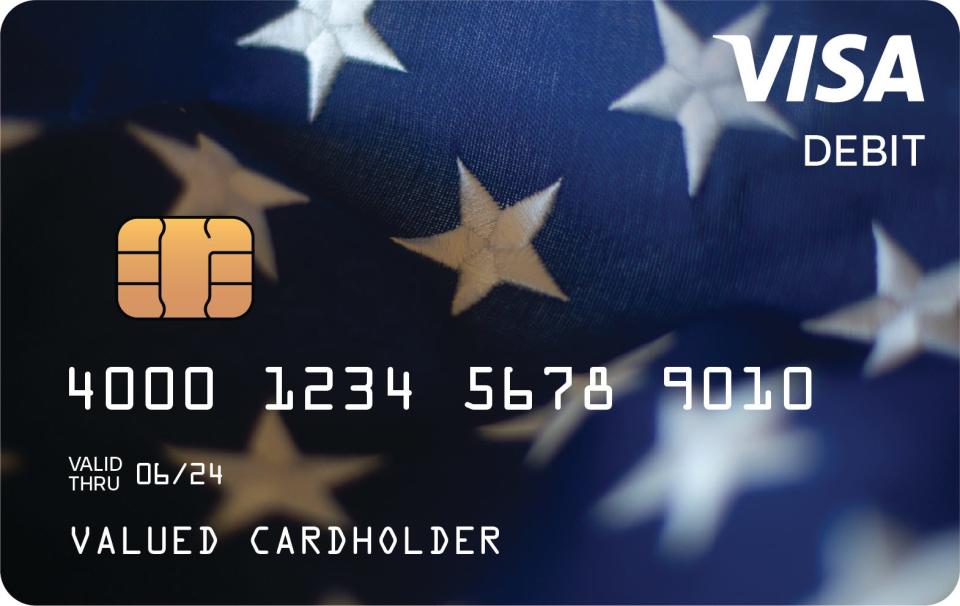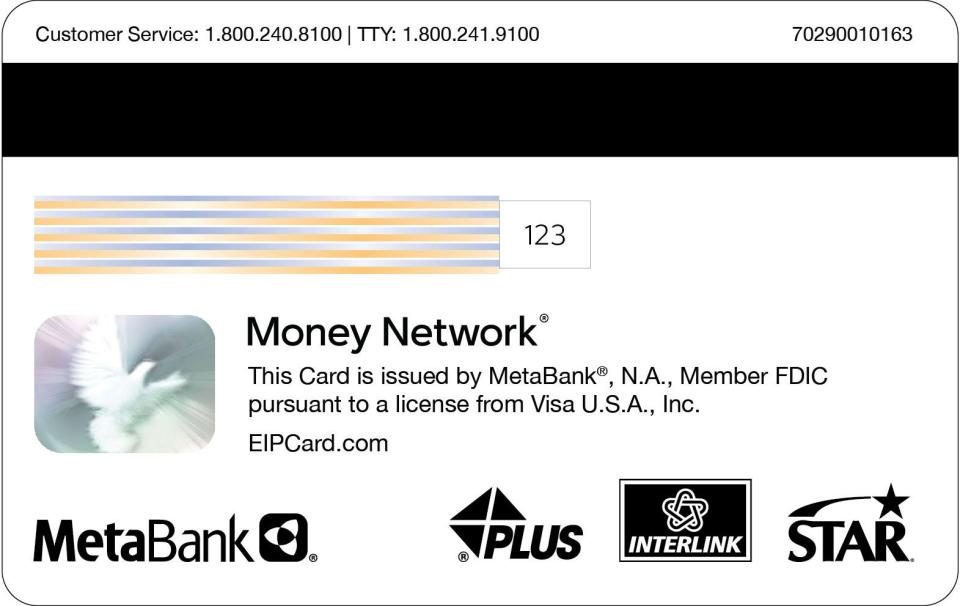Blue Visa card looks like a stimulus scam. But it's not
Daniel Brazill has been convinced for the past week that he just pulled the latest scam out of his mailbox, when he could have been out spending his $600 in stimulus cash.
While some people are still wondering when their second round of stimulus money will show up, others aren't quite sure what's happening when a plastic bank card arrives in the mail. Is it a scam?
About a week ago, Brazill said a Visa card popped up in the mail out of the blue. The card itself happens to be blue, too, with stars all over it. The white envelope has a red notice printed on it, claiming this mailing wasn't a bill or an advertisement. Instead, it was "important information about your Economic Impact Payment."
The card was connected to the federal government's stimulus payments. All he had to do was call a number to activate the second Economic Impact Payment, which began rolling out to millions of people across the country in late December.
Economy: Businesses boost spending as they look toward better spring
Stimulus checks and taxes: What you need to know before filing your 2020 income tax returns
Why am I getting a plastic debit card when I got a stimulus check last time?
But Brazill, a Ford retiree, was skeptical. He knows the scammers are out there with all kinds of tricks. Someone called him claiming to be from Amazon about two hours after he called Amazon once and, well, he thought it was Amazon, so he exchanged some personal information that he wishes he wouldn't have handed over.
"After being had a couple of times, you get a little gun-shy," Brazill said.
So he couldn't understand why the Internal Revenue Service would supposedly send him his stimulus money on a Visa card when he received his first stimulus payment on a paper check last year.
"To me, it seemed like it could be a scam because I got an actual check the first time," he said. "I was nervous about it before I even called the number."
He called, though, and put in the 16-digit number on the front of the card. And then the recording asked for the last six digits of his Social Security number.
And that's when he hung up.
Give out 6 digits of your Social Security number? What? The con artists only have to figure out three more, he thought, and they're set to go.

Yet Brazill wasn't on the verge of being scammed.
Beginning in the first week in January, the Treasury and the IRS started sending out about 8 million prepaid debit cards for people to access their Economic Impact Payments.
The U.S. Department of Treasury noted: "In order to quickly disburse EIPs, some people who received EIPs by paper check for the first round of EIPs might receive an EIP Card this time, and some people who received an EIP Card for the first round may receive a paper check."
Confused? Well, you're not alone.
Is it a scam? Or isn't it?
Many consumers are skeptical of these cards.
The Better Business Bureau has been receiving calls from consumers who are confused about the blue Visa card.
"Some seniors thought it was a scam and were going to throw it away," said Laura Blankenship, director of marketing for the Better Business Bureau Serving Eastern Michigan & the Upper Peninsula.
She noted that the consumers who have called so far are describing legitimate EIP payment cards, and the BBB has been telling them not to destroy those cards. Instead, they can get more information at EIPCard.com.
Make no mistake, scammers are targeting stimulus cash. But the scams often ask for money upfront – such as to pay taxes on the stimulus or "pay the State Department for a certificate that proves the funds are not related to any terrorist activity." Huge red flag: Anyone demanding money – or credit card information – so you can get stimulus money, is a scammer.
Also, the IRS isn't sending out emails, texting or making phone calls about the latest round of stimulus payments.
Even so, the legitimate Visa card aspect of the stimulus rollout has had many people on edge. A similar scare took place in the spring, when I reported in May that some consumers were throwing away the first round of Visa debit cards that contained stimulus money. One woman even went so far as to shred the card.

Some 4 million people were set to receive their stimulus payments via the prepaid debit cards during the first stimulus effort.
If you receive one of these cards, you must first activate your card – by phone or online – before you can use it. You're going to need to provide your name, address and Social Security number to validate your identity, according to an online how-to released in June by the Consumer Financial Protection Bureau. See www.consumerfinance.gov and search "Economic Impact Payment."
The cards have no monthly fee. You need a four-digit PIN to buy items like groceries and other goods at the store, but no fee is involved.
Money can be withdrawn from ATMs in the AllPoint brand network without a fee.
But there's a $2 fee for withdrawals at out-of-network ATMs, though the first such withdrawal is free. You can go to EIPCard.com for the ATM locator and fee schedule.
What do you do if you threw away the card, thinking it was a scam?
"If your Card is discarded or destroyed," according to the EIPCard.com site, "it is important that you call Customer Service at 800-240-8100 immediately and select the 'Lost/Stolen' option."
When I talked with Brazill, he remained skeptical even after hearing that the IRS is sending cards to people who received checks the last time, like he did. He'd rather have a check.
But he figured he'd find a way to spend the money and stay away from possible fees.
"If it's legit, it's legit," he told me. "I'm just being cautious."
Contact Susan Tompor via stompor@freepress.com. Follow her on Twitter @tompor. To subscribe, please go to freep.com/specialoffer. Read more on business and sign up for our business newsletter.
This article originally appeared on Detroit Free Press: Stimulus payments: Another scam? Some wonder about blue Visa cards

